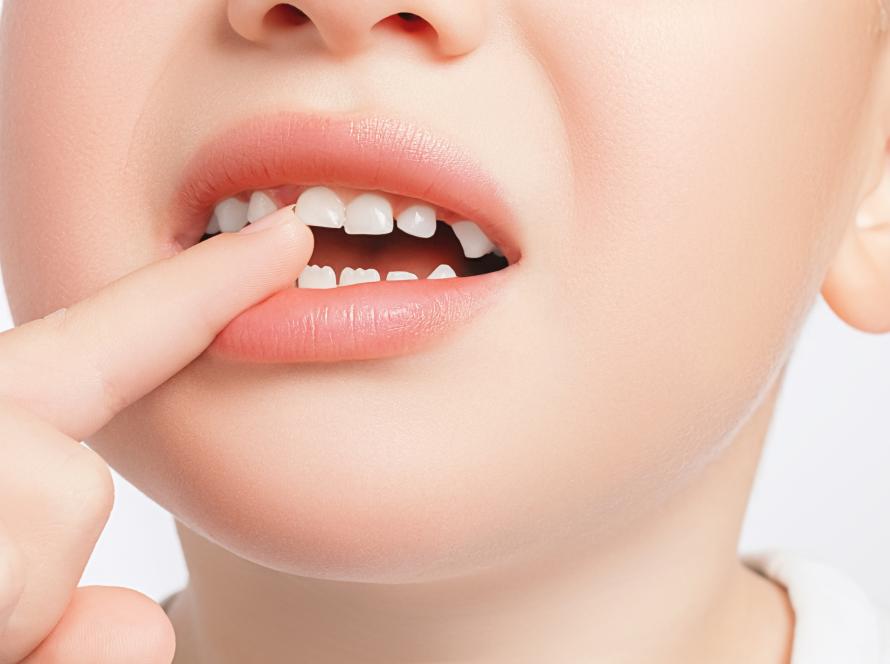The realization that your child may need dental surgery can be an intimidating and daunting prospect for any parent. Understanding the nuances of kids’ dental surgery, pediatric sleep dentistry, and overall kids’ oral care is crucial in making informed decisions for your child’s health. This blog aims to provide comprehensive guidance for parents navigating the complexities of their child’s oral health needs, emphasizing the importance of consulting a specialized children’s dentist.
Understanding the Need for Kid’s Dental Surgery
Dental surgery in children can range from simple procedures like tooth extractions to more complex operations like correcting jaw issues. The need for surgery often stems from extensive tooth decay, injuries, or congenital anomalies that affect a child’s oral health and, subsequently, their overall well-being. With their expertise in pediatric oral care, a children’s dentist is the best resource for diagnosing and recommending the appropriate surgical interventions. Here are some common reasons why a child might need oral surgery:
- Tooth Decay: Severe cavities or tooth decay that cannot be treated with fillings or crowns might necessitate surgical intervention, such as tooth extraction. This is necessary to prevent decay or infection from spreading to other areas or into the child’s bloodstream.
- Dental Injuries: Accidents or trauma can lead to broken, cracked, or knocked-out teeth that might require surgical restoration or extraction, especially if the damage extends to the tooth root or jawbone.
- Impacted Teeth: Sometimes, teeth (often wisdom teeth or canines) do not emerge from the gum line as they should, becoming trapped (impacted) within the jawbone. Surgery might be needed to remove these teeth or to assist them in erupting properly.
- Orthodontic Reasons: In preparation for orthodontic treatment, oral surgery, such as tooth extraction, may be necessary to address overcrowding or to remove supernumerary (extra) teeth that are preventing other teeth from erupting.
- Ankyloglossia (Tongue-Tie): Some children are born with a condition where the frenulum (the tissue that connects the underside of the tongue to the rest of the mouth) is too short, restricting tongue movement. A simple surgical procedure can release the frenulum, improving speech and eating functions.
- Cleft Lip and Palate Repair: Children having a condition from birth known as a cleft lip or palate (or both) will typically require surgical intervention to correct the defect, which can affect feeding, speech, and normal facial development.
- Jaw Abnormalities: Congenital abnormalities or growth issues with the jaw that affect a child’s ability to eat, speak, or breathe may require corrective jaw surgery (orthognathic surgery) to realign the jaw.
- Cysts and Tumors: Benign (non-cancerous) or malignant (cancerous) growths in the mouth or jaw area may require surgical removal to prevent damage to surrounding teeth and bone and, in the case of malignancy, to treat the cancer.
- Infections: Severe or deep infections in the tooth or gum that do not respond to antibiotics or other treatments might need surgical intervention to drain the infection and remove any affected tissue.
- Biopsy Procedures: If there’s an unexplained lesion or growth in a child’s mouth, a dentist or oral surgeon might perform a biopsy, removing a small piece of tissue for laboratory analysis to rule out or diagnose conditions, including oral cancer.
Each of these situations requires a careful and comprehensive assessment by a children’s dentist or an oral surgeon specializing in pediatric cases.
The Role of a Children’s Dentist
A children’s dentist is a practitioner skilled in dental procedures and an expert in managing the psychological aspects of treating young patients. They create a welcoming and fear-free environment, which is crucial for children who may be anxious about dental visits. When it comes to kids’ dental surgery, these specialists use age-appropriate communication to explain procedures to both parents and children, ensuring a clear understanding and comfort level with the proposed treatment plan.
Pediatric Sleep Dentistry: A Comforting Option
Pediatric sleep dentistry is an innovative approach that addresses one of the primary concerns of parents and children alike: the fear and anxiety associated with dental procedures. This method involves the use of safe sedation techniques to ensure the child is comfortable and pain-free during surgery. It’s a game-changer in kid’s oral care, allowing for more complex procedures to be completed with minimal stress for the young patient.
Preparing Your Child for Surgery
Preparation is vital to a successful dental surgery and recovery. Parents should engage in open conversations with their child about the procedure, using simple and reassuring language. A visit to the children’s dentist before the surgery can also help familiarize the child with the environment and the dental team, reducing pre-surgery anxiety.
The Day of the Surgery
Pediatric sleep dentistry plays a pivotal role in ensuring the child’s comfort on the day of the kid’s dental surgery. The dental team will guide you and your child through the sedation process, continuously monitoring the child’s vital signs to ensure their safety. Parents are usually allowed to stay with their child until they fall asleep, providing the emotional support their child needs.
Post-Surgery Care
After the surgery, the children’s dentist will provide detailed instructions for post-operative care. This may include managing pain, ensuring proper oral hygiene to prevent infection, and a follow-up schedule to monitor healing. Following these guidelines is crucial for a smooth recovery and minimizing the risk of complications.
Kid’s Oral Care: Prevention is Key
While some dental surgeries are unavoidable, many can be prevented with proper kid’s oral care. Routine dental check-ups, good oral hygiene practices at home, and a balanced diet play significant roles in maintaining a child’s oral health. Education on the importance of dental care should start early, with parents leading by example and making oral hygiene a fun and routine part of the child’s day.
When to Consult a Children’s Dentist
If you suspect your child may need dental surgery, the first step is to consult a children’s dentist. Early intervention, in most cases, can prevent more serious issues down the line. Signs that your child may need to see a dentist include persistent pain, difficulty eating, swelling, and visible damage to the teeth or gums.
If your child is facing dental issues, don’t wait. Consulting a specialized children’s dentist can help address problems early on, potentially avoiding the need for surgery. For those navigating the path of kid’s dental surgery, remember that with the right preparation and care, including the benefits of pediatric sleep dentistry, your child can have a positive and successful experience. Prioritizing your child’s oral health is an investment in their overall well-being. Schedule an appointment with a children’s dentist today to ensure your child’s smile remains bright and healthy for years to come.
Navigating the journey of a kid’s dental surgery can be challenging, but with the right information and support from specialized children’s dentists, parents can ensure the best care for their child’s oral health. Remember, proactive kid’s oral care and early consultation with a children’s dentist can make all the difference in your child’s dental health journey.


